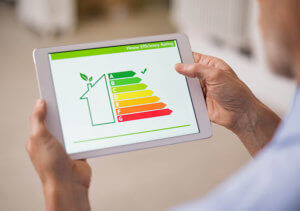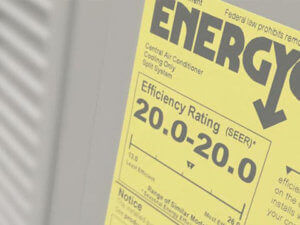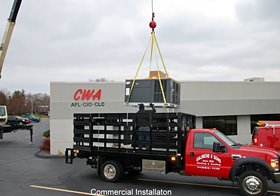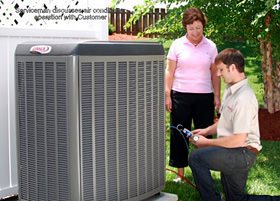Air conditioning systems are certainly a must-have for the hot St. Louis summers. But keeping aside the comfort that brings, you may have second thoughts when you see the impact it has on your energy bills. Yes, HVAC systems are quite energy-intensive, and keeping your utility bills down while using an HVAC system is tough. But with a little deliberation and research before purchasing an HVAC unit, understanding the air conditioner energy ratings can save you a great deal.

To understand how air conditioner energy ratings work and which HVAC units will best meet your needs, consult an HVAC expert. In St. Louis and the surrounding areas, call the heating and air conditioning experts at Galmiche & Sons at 314-993-1110.
What You Should Know About Air Conditioner Energy Ratings
Understanding air conditioner energy ratings can be difficult if you are unfamiliar with the terms. Here are a few things you need to know.
EER and SEER
When shopping around for HVAC units for your air conditioner replacement, you might come across the acronyms EER and SEER. EER is an abbreviation for Energy Efficiency Ratio while SEER stands for Seasonal Energy Efficiency Ratio.
The Energy Efficiency Ratio tells you what the air conditioner’s efficiency is at a single fixed operating temperature. The standard outdoor temperature usually considered is 95 degrees Fahrenheit. EER is used to specify the efficiency of window, split, or portable air conditioners. The higher the EER, the more efficient the air conditioner is.
Seasonal Energy Efficiency Ratio, on the other hand, measures the performance of the air conditioner over an entire season as is evident from the name. Instead of a single fixed temperature, as in the case of EER, SEER is an indicator if efficiency measure over a range of temperatures during a season. The range is usually from 65 to 104 degrees Fahrenheit. SEER is an air conditioner energy rating more commonly used for central air conditioners. A higher SEER indicates that the air conditioner will perform better within that temperature range.
How High Should Your Air Conditioner Energy Ratings Be?

In the case of air conditioner energy ratings, higher is usually better. When looking for a good central air conditioner, you should look for a sufficiently high SEER rating. But since EER is measured at a single high temperature, the EER rating need not be as high if you live in a relatively cooler climate. For very hot climates, a higher EER rating is preferred since the EER shows the efficiency of the AC when it is constantly running at full capacity.
Higher air conditioner energy ratings, in both cases, mean that the HVAC unit will consume less electricity. The ideal air conditioner energy ratings for your use will depend on the size of the space you need to cool, the average outside temperature, and the cooling capacity you require.
Consult an Experienced HVAC Contractor to Know What’s Best for You
If you are still finding it hard to figure out, a good HVAC expert in St. Louis can help you decide what air conditioning energy ratings you need. Galmiche & Sons has been in the HVAC unit installation and maintenance industry in St. Louis since 1950. You can take the word of our experts for all your air conditioning-related queries. Call our experienced heating & air conditioning professionals today to learn more.












